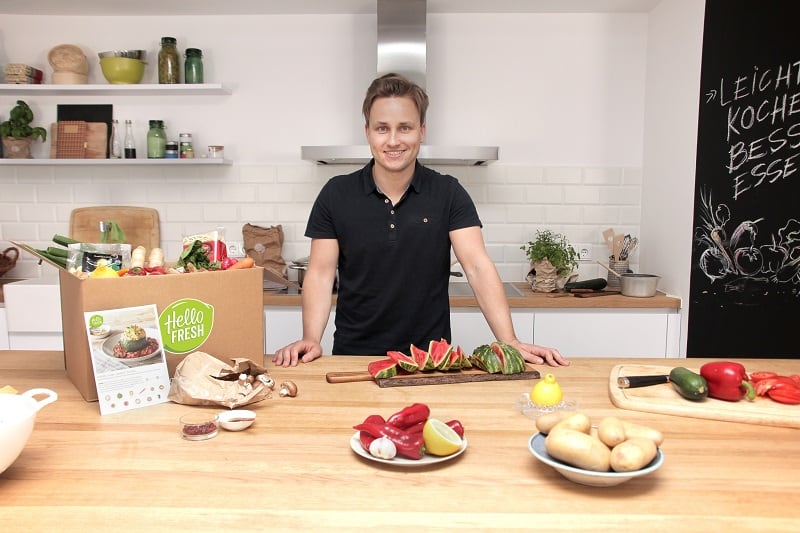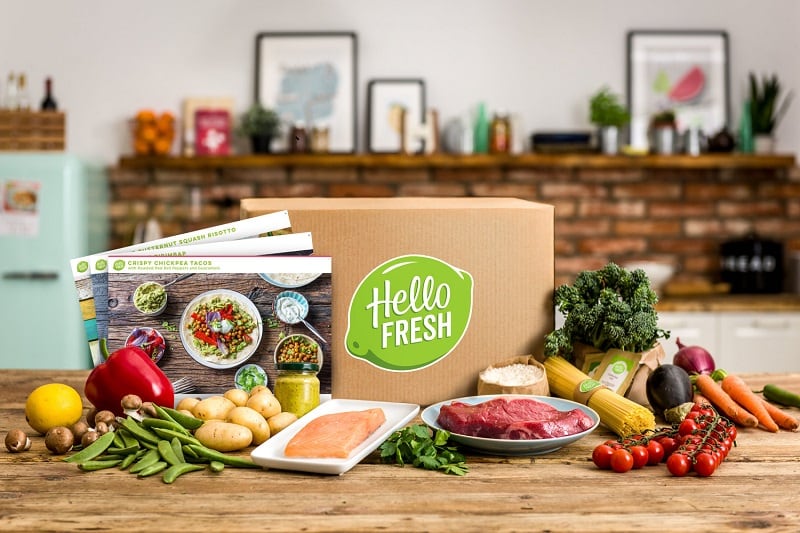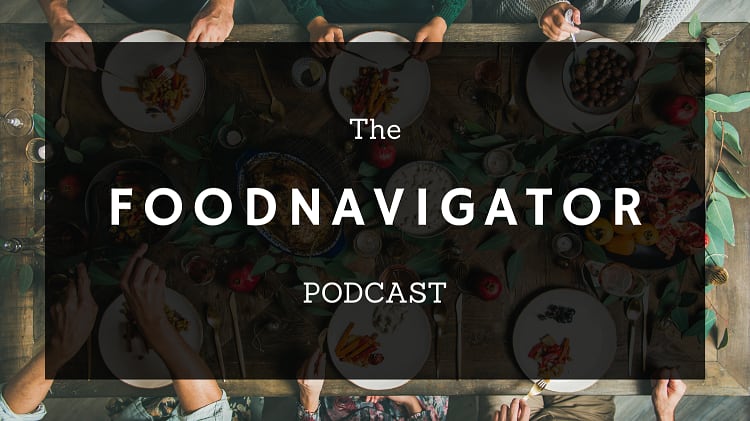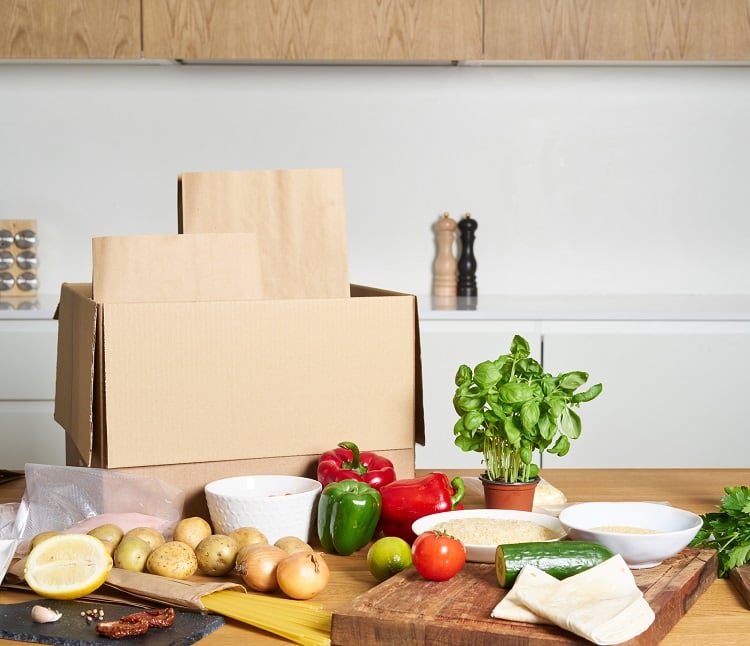The German company, which was founded in 2011 and delivers meal kits in Germany, the UK, Belgium, the Netherlands, Luxembourg, Austria, Switzerland, Denmark, Sweden, Australia, Canada and New Zealand, reported adjusted earnings before interest, tax, depreciation and amortization (EBITDA) of €153.6 million in the second quarter of 2020 compared with €18.3 million the same period a year earlier.
Net profit rose to €115.8 million from a loss of €4.8 million the year earlier. Revenue for the period was €972.1 million, up from €436.7 million.
It raised its guidance for 2020 for the third time, thanks to "a more favorable than expected summer seasonality" and "additional demand triggered by a renewed worsening" of the pandemic in some markets.
It now expects full-year revenue growth between 75% and 95%, up from a previous estimate between 55% and 70%. Adjusted EBITDA margin for 2020 is guided at between 9% and 11%, up from between 8% and 10%.
Its number of orders rose over a 100% year-on-year to 18.1 million in the second quarter compared to 8.93 million in the same quarter of last year. While the average order value in the US increased by 18% year-on-year to €59.2 and the order frequency by 23.6% to 4.5 orders per quarter, internationally the basket size remained broadly stable and order frequency grew by 10% to 4.2 orders.
“The growth we’ve been seeing in the last months has been exceptional, as both new and existing customers have made HelloFresh their go-to choice for cooking at home,” said Dominik Richter, co-founder and CEO of HelloFresh. “I am proud that we could validate our customers’ trust as reflected in high recurring order rates and larger baskets than ever. We see clear indicators how customers have started to form new habits and expanded their share of weekly HelloFresh meals as they are spending more time at home.”
Speaking on a conference call with investors, Richter said that the international COVID lockdowns had meant customers were faster at forming habits than in the past, meaning they became more loyal customers, more quickly.
“Due to our customers continuing to spend more time at home, the strong habit formation that has been taking place, especially for new customers, and the absence of long vacations abroad in the summer season, have continued into the third quarter. That is why we have once again upwardly adjusted our revenue guidance.”
CFO Christian Gaertner added: “What we typically see is that when customers typically cook 5 to 10 meals in the first 30 to 45 days, that’s when habits become sticky and that’s when they become really good long-term customers. That behaviour usually takes longer in non-COVID times. So with people stuck at home and spending a lot more time cooking meals at home that time line for habit formation has compressed… We can clearly see that some of those newer customers have higher order rates than new customers previously had.”
Rising competition from retailers
Gaertner said the company was confident it could fend off rising competition from retailers in the meal-kit space. In the UK M&S recently launched its first recipe box in a move it said would “shake up the market”. In Germany, Marley Spoon has started offering Dinnerly, billed as an “affordable food delivery service” with meal-kits starting at EUR2.99.
Gaertner said he was “not blown away” by the competition. “We have seen different efforts of supermarkets over the last couple of years as early as 2013/14 and more in 2015/16 and overall that situation hasn’t changed…When it comes to the quality of the offering there’s nowhere near what a specialist meal kit company can do, whether that’s ourselves or even some of our smaller competitors.
“It’s just very different from running an inventory-based retail business, rather than a fully integrated brand and manufacturing business. It’s a very different ball game and why I haven’t been blown away by some of the offerings in the [retail] market.”
Robert Berg, an analyst from the broker Berenberg agreed. He told FoodNavigator: “Supermarkets have been attempting this segment for years, it is nothing new. Typically, a supermarket does not have the same skillset as HelloFresh. Granted it can source and sell food, but it doesn’t typically excel in menu curation and manufacturing – the end-to-end process that HelloFresh excels in. This usually results in a less tailored, inferior offering.”
COVID has delayed HelloFresh’s ready-meal plans
But COVID-19 has delayed HelloFresh’s plans to offer its customers ready-meals by “six to 12 months” said the CFO as the pandemic caused capacity constraints.
“That is an area we’re very optimistic about, but it definitely has taken a back seat in the last couple of months because that is something where we need capacity in our manufacturing facilities to prepare those type of meals.”
He added: “In Germany our market share is very high. The new offering that one of our competitors is trying to push is about the same price point of our core product.”
In response to a raft of companies offering vegetable boxes and the growth of direct-from-farmer business models, HelloFresh revealed it was looking at “similar activities”.
In a note to investors, Barclays added that the demand tailwind provided to HelloFresh by COVID-19 “likely won’t continue forever” but was stronger than it had previously thought.
“All in all, it seems the demand tailwind provided by Covid-19 is stronger and longer-lasting than we had previously thought,” it said. “Customers acquired in Q2 are showing strong retention patterns, which is encouraging - and might mean a higher proportion of these customers ultimately ‘stick’ in 2021.”





